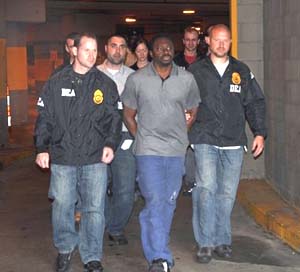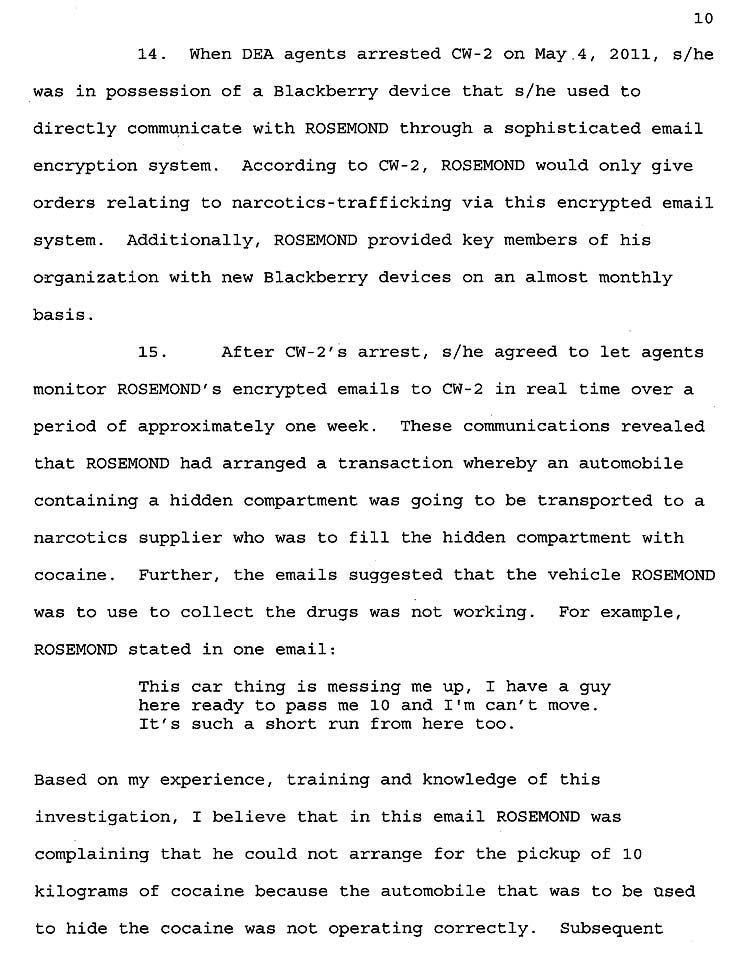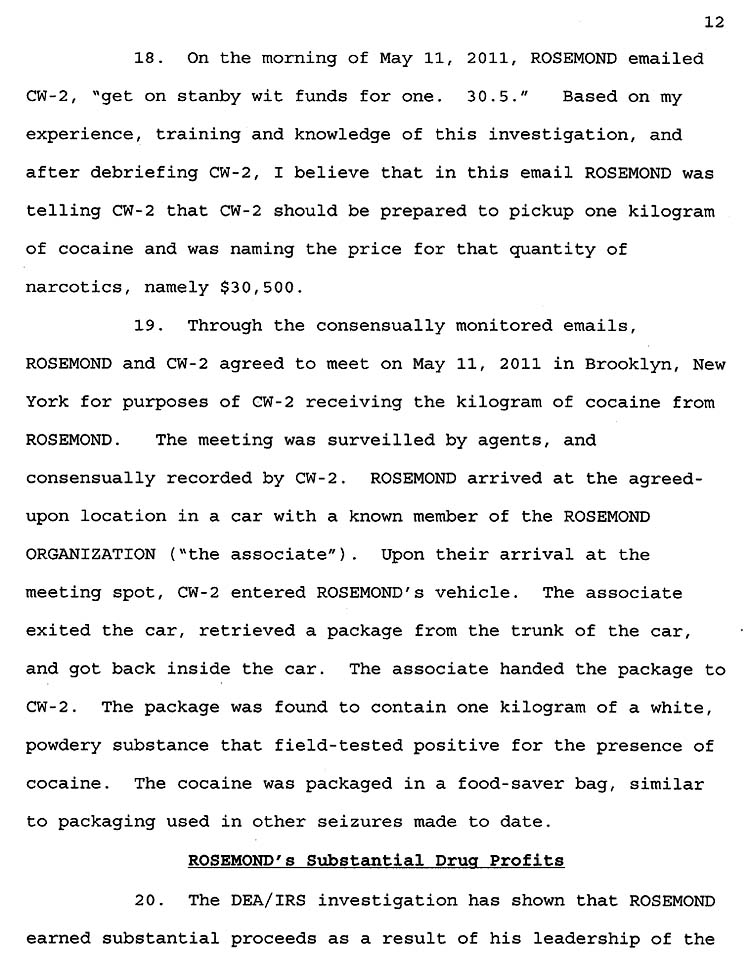New DEA Snitch Helped Sink James Rosemond
Judge jails hip-hop manager without bail following bust

JUNE 21--A judge this afternoon ordered James Rosemond held without bail, hours after federal agents tackled him on a Manhattan street, ending the hip-hop manager’s month-long run as a fugitive.
A post-arrest search of Rosemond turned up what prosecutor Todd Kaminsky described as a “fugitive's tool kit,” including two doctored driver's licenses, five Blackberry phones, evidence that he had applied for a new U.S. passport under a fake name, and records showing that he planned to travel to the Bahamas on Friday.
 Dressed in a grey polo shirt, jeans, and Adidas sneakers during a five-minute appearance at U.S. District Court in Brooklyn, Rosemond was termed an “extreme flight risk” by Kaminsky. Magistrate Judge Viktor Pohorelsky apparently concurred with that analysis, entering a permanent detention order against the 46-year-old Rosemond, who is pictured in custody at right.
Dressed in a grey polo shirt, jeans, and Adidas sneakers during a five-minute appearance at U.S. District Court in Brooklyn, Rosemond was termed an “extreme flight risk” by Kaminsky. Magistrate Judge Viktor Pohorelsky apparently concurred with that analysis, entering a permanent detention order against the 46-year-old Rosemond, who is pictured in custody at right.
While most details of the Drug Enforcement Administration probe of Rosemond--or the “Rosemond Organization” as dubbed by prosecutors--have appeared in these pages (here and here), a criminal complaint unsealed today reveals that Rosemond’s alleged drug trafficking continued as recently as last month, despite the advanced stage of the criminal investigation and the arrest of many of his associates.
According to the May 11 complaint sworn by DEA Agent Steven Miller, a high-ranking member of the Rosemond ring was arrested on May 4 and immediately agreed to cooperate with investigators. The confidential witness, identified only as “CW-2” in the complaint, confessed to narcotics trafficking in an attempt to secure a reduced prison sentence.
A source familiar with the Rosemond investigation identified “CW-2” as Winston Harris, a 48-year-old Jamaican citizen who was deported from the U.S. in May 2003 after he finished serving a lengthy federal prison term for cocaine trafficking.
A federal criminal complaint against Harris--whose undercover cooperation against Rosemond had by then ended--was unsealed on May 13, the same day that he was incarcerated at the Metropolitan Detention Center in Brooklyn. Harris is seen below.
 Harris allowed agents to monitor, in real time, e-mails sent by Rosemond “through a sophisticated email encryption system,” according to the Rosemond complaint. The e-mails were received by Harris on a Blackberry provided by Rosemond, who “provided key members of his organization with new Blackberry devices on an almost monthly basis.”
Harris allowed agents to monitor, in real time, e-mails sent by Rosemond “through a sophisticated email encryption system,” according to the Rosemond complaint. The e-mails were received by Harris on a Blackberry provided by Rosemond, who “provided key members of his organization with new Blackberry devices on an almost monthly basis.”
As detailed in the complaint, which is excerpted here, DEA agents monitored e-mails in which Rosemond described setting up the distribution of a kilo of cocaine. That transaction occurred on May 11, when Harris met with Rosemond and another man in Brooklyn. Harris--who was wearing a wire--was provided the kilo while seated in Rosemond’s car. The meeting, Agent Miller noted, was being surveilled by DEA agents.
Harris subsequently turned over the package to his federal handlers, who determined that the contents tested positive for the presence of cocaine. The drug, Miller added, “was packaged in a food-saver bag, similar to packaging used in other seizures made to date.”
Kaminsky said that the government will seek an indictment of Rosemond within 30 days. Those charges--expected to include narcotics trafficking, witness tampering, and obstruction of justice--could carry a potential life sentence for Rosemond. (3 pages)







